Daily Vocabulary Words: List of Daily Used Words in Leading Indian Newspapers
Hi there. Welcome to this special section @ Wordpandit. Our endeavour here is straightforward: highlighting daily vocabulary words that you would come across in leading newspapers in the country. We have included the following newspapers in our selection:
• The Times of India
• The Economic Times
• Hindustan Times
• Mint
• Indian Express
We are putting in extensive work to develop your vocabulary. All you have to do is be regular with this section and check out this post daily. This is your repository of commonly used words; essentially, we are posting a list of daily used words. Hence, this has significant practical application as it teaches you words that are commonly used in leading publications mentioned above.
Visit the website daily to learn words from leading Indian newspapers.
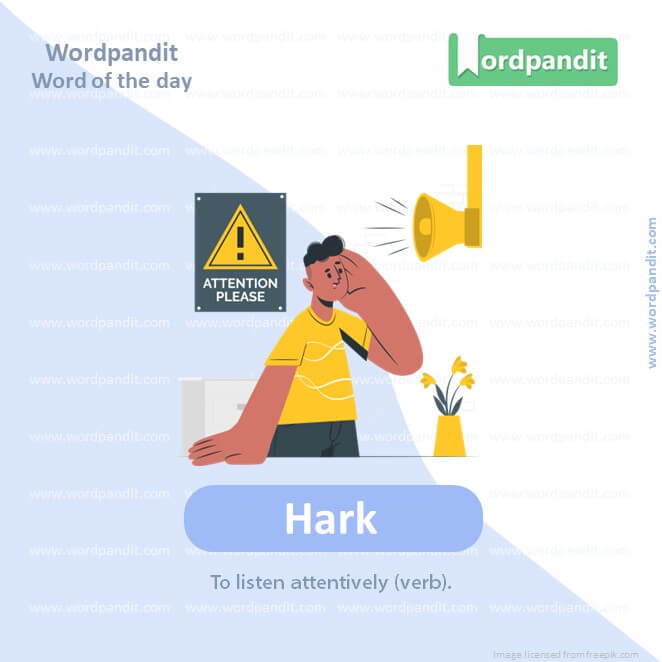
WORD-1: Hark
CONTEXT: All current discussions on the geopolitics of Artificial Intelligence inevitably hark back to the nuclear experience. As the world recalls the lessons from the nuclear age to cope with the problems and opportunities presented by AI, India too could benefit from a reflection on its complex nuclear history.
EXPLANATORY PARAGRAPH: Imagine you’re in a park, and you hear a bird chirping. You stop and listen carefully to the sound. That’s like “hark.” It means you’re paying close attention to a sound or listening really well.
MEANING: To listen attentively (verb).
PRONUNCIATION: hahrk
SYNONYMS: Listen, Hear, Pay attention, Heed, Attend.
USAGE EXAMPLES:
1. “Hark! Do you hear the sound of the wind in the trees?”
2. The children were told to hark to the teacher’s story.
3. “Hark at the rain hitting the roof.”
4. They harked to the distant church bells.
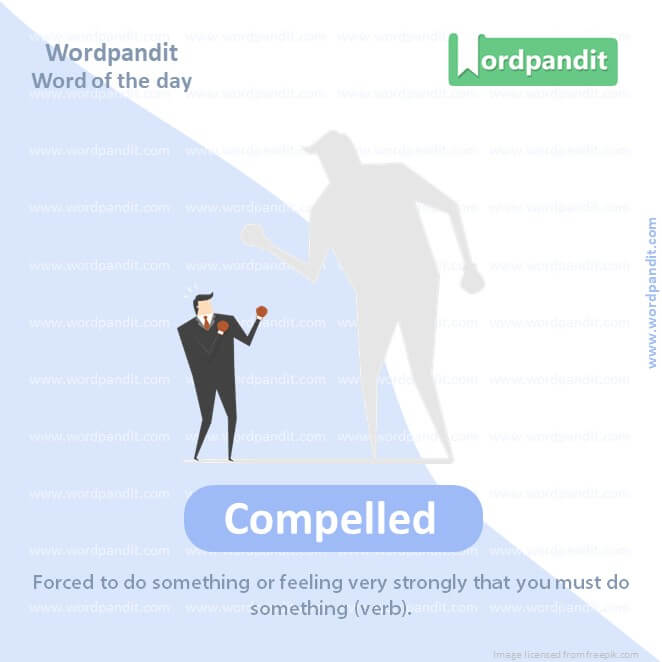
WORD-2: Compelled
CONTEXT: Although nuclear and AI are very different, there are similarities too. The nuclear revolution was revealed to the world by the use of atomic bombs against Hiroshima and Nagasaki in August 1945. The enormous destructive power and its horrendous consequences compelled statesmen and scientists to consider ways to limit the threats to the survival of humanity in the nuclear age.
EXPLANATORY PARAGRAPH: When you have to do something because you’re being pushed or because it’s really important, that’s being “compelled.” Like when mom says you must eat your veggies to be healthy.
MEANING: Forced to do something or feeling very strongly that you must do something (verb).
PRONUNCIATION: kuhm-peld
SYNONYMS: Forced, Obliged, Coerced, Required, Constrained.
USAGE EXAMPLES:
1. She felt compelled to apologize.
2. The law compelled him to pay the fines.
3. He was compelled to leave due to the storm.
4. The situation compelled a tough decision.
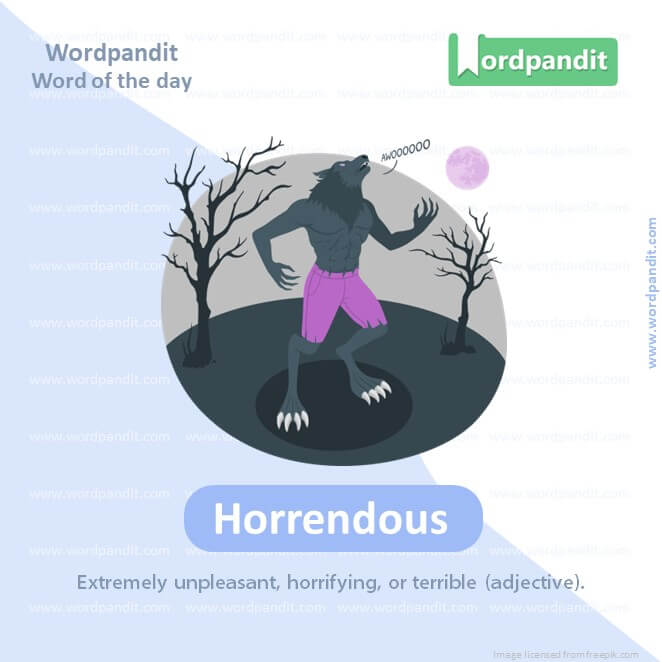
WORD-3: Horrendous
CONTEXT: Although nuclear and AI are very different, there are similarities too. The nuclear revolution was revealed to the world by the use of atomic bombs against Hiroshima and Nagasaki in August 1945. The enormous destructive power and its horrendous consequences compelled statesmen and scientists to consider ways to limit the threats to the survival of humanity in the nuclear age.
EXPLANATORY PARAGRAPH: “Horrendous” is like when something is really, really scary or super bad. It’s like seeing a huge monster in a movie that makes you want to hide.
MEANING: Extremely unpleasant, horrifying, or terrible (adjective).
PRONUNCIATION: huh-ren-duhs
SYNONYMS: Terrible, Awful, Dreadful, Frightful, Horrible.
USAGE EXAMPLES:
1. The movie had some horrendous scenes.
2. They heard a horrendous noise outside.
3. The storm caused horrendous damage.
4. She had a horrendous experience on the trip.
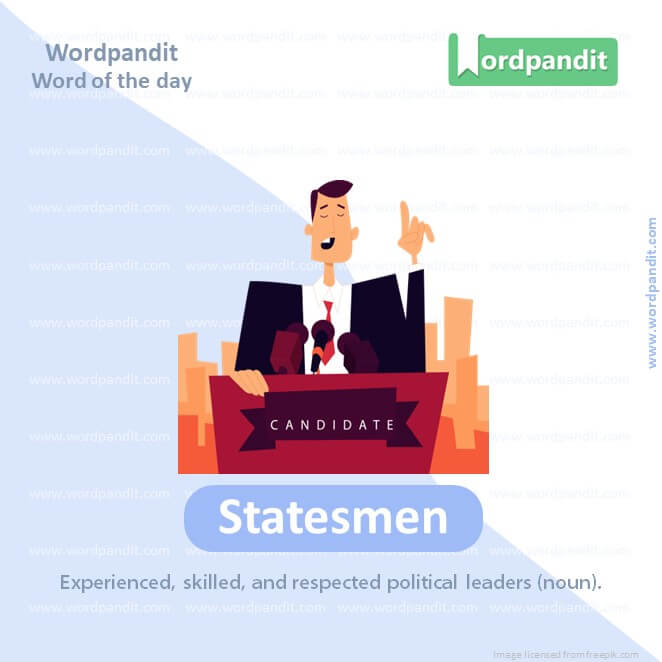
WORD-4: Statesmen
CONTEXT: Although nuclear and AI are very different, there are similarities too. The nuclear revolution was revealed to the world by the use of atomic bombs against Hiroshima and Nagasaki in August 1945. The enormous destructive power and its horrendous consequences compelled statesmen and scientists to consider ways to limit the threats to the survival of humanity in the nuclear age.
EXPLANATORY PARAGRAPH: A “statesman” is like a superhero in politics. They are wise, good at solving problems, and help run the country. When there are many, we call them “statesmen.”
MEANING: Experienced, skilled, and respected political leaders (noun).
PRONUNCIATION: stayts-muhn
SYNONYMS: Politician, Diplomat, Leader, Lawmaker, Elder statesman.
USAGE EXAMPLES:
1. He was considered a great statesman for his country.
2. The conference was attended by several notable statesmen.
3. She admired the statesmen of the past for their wisdom.
4. The peace treaty was negotiated by experienced statesmen.
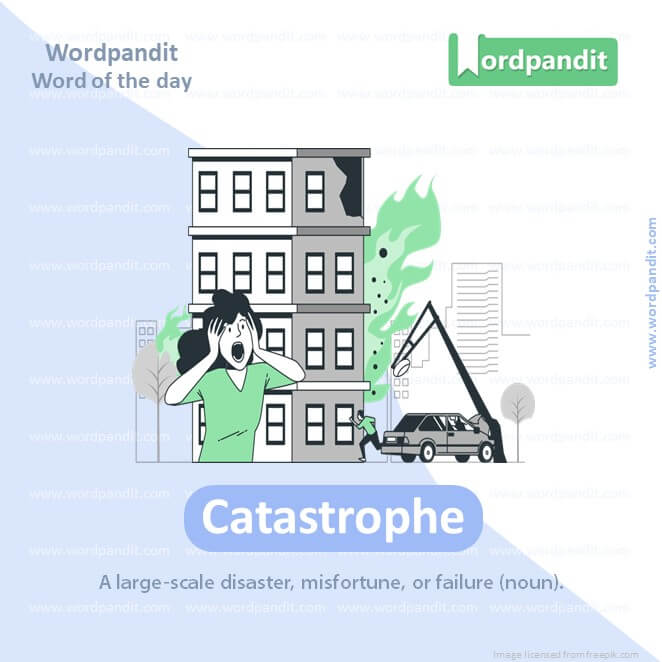
WORD-5: Catastrophe
CONTEXT: The AI revolution threatens an even bigger catastrophe — machines taking over from humanity and enslaving them. The broader impact of the AI revolution is likely to be far more sweeping; while nuclear technology never lived up to its economic promise of “delivering electricity too cheap to meter”, AI promises to transform the economy, society and polity in fundamental ways.
EXPLANATORY PARAGRAPH: “Catastrophe” is like a very big accident or disaster. It’s when something really bad happens, like a huge flood or a building falling down.
MEANING: A large-scale disaster, misfortune, or failure (noun).
PRONUNCIATION: kuh-tas-truh-fee
SYNONYMS: Disaster, Calamity, Tragedy, Misfortune, Crisis.
USAGE EXAMPLES:
1. The earthquake was a major catastrophe.
2. Their business faced a catastrophe when the market crashed.
3. The hurricane caused a catastrophe in the city.
4. To avoid catastrophe, they evacuated the area.
WORD-6: Enslaving
CONTEXT: The AI revolution threatens an even bigger catastrophe — machines taking over from humanity and enslaving them. The broader impact of the AI revolution is likely to be far more sweeping; while nuclear technology never lived up to its economic promise of “delivering electricity too cheap to meter”, AI promises to transform the economy, society and polity in fundamental ways.
EXPLANATORY PARAGRAPH: “Enslaving” means making someone a slave, which is forcing them to work without any choice or freedom. It’s like being really unfair and mean to someone by not letting them be free.
MEANING: Making someone a slave or completely controlling them (verb).
PRONUNCIATION: en-sley-ving
SYNONYMS: Subjugating, captivating, dominating, shackling, binding.
USAGE EXAMPLES:
1. The history book talked about the enslaving of people long ago.
2. They were against the enslaving of animals in circuses.
3. The story described a villain enslaving an entire village.
4. Laws were made to prevent the enslaving of individuals.
WORD-7: Dawn
CONTEXT: Yet, many of the issues that animate AI governance today are similar to those the world faced at the dawn of the nuclear age.
EXPLANATORY PARAGRAPH: “Dawn” is when the sun comes up in the morning, and everything starts to get light after the night. It’s like when you wake up early and see the sky getting brighter.
MEANING: The first light of the day; the beginning of something (noun).
PRONUNCIATION: dawn
SYNONYMS: Sunrise, daybreak, morning, outset, commencement.
USAGE EXAMPLES:
1. They started their journey at dawn.
2. Dawn broke, bringing a new day.
3. At the dawn of the century, new inventions appeared.
4. The sky was beautiful at dawn.
WORD-8: Idealism
CONTEXT: For one, the disarmament idealism of the kind that animated India’s approach to nuclear weapons is fortunately behind us when it comes to AI. The endless drumbeat from Delhi about the “time-bound elimination of nuclear weapons” prevented India from thinking clearly about the role of atomic weapons in the international system.
EXPLANATORY PARAGRAPH: “Idealism” is like always thinking about the best way things could be. It’s like dreaming of a perfect world where everything is good and everyone is happy.
MEANING: The practice of forming or pursuing ideals, often unrealistically (noun).
PRONUNCIATION: ahy-dee-uh-liz-uhm
SYNONYMS: Perfectionism, utopianism, romanticism, optimism, dreaminess.
USAGE EXAMPLES:
1. Her idealism led her to believe in a better world.
2. The movement was driven by youthful idealism.
3. His idealism was evident in his speeches.
4. They admired her sense of idealism.
WORD-9: Drumbeat
CONTEXT: For one, the disarmament idealism of the kind that animated India’s approach to nuclear weapons is fortunately behind us when it comes to AI. The endless drumbeat from Delhi about the “time-bound elimination of nuclear weapons” prevented India from thinking clearly about the role of atomic weapons in the international system.
EXPLANATORY PARAGRAPH: “Drumbeat” is the sound a drum makes, like boom-boom-boom. It’s a steady, repeating sound, like when you tap your foot to music.
MEANING: A rhythmic pounding or sound like that of a drum (noun).
PRONUNCIATION: druhm-beet
SYNONYMS: Rhythm, thump, beat, pulsation, cadence.
USAGE EXAMPLES:
1. The drumbeat of the music was very catchy.
2. They marched to the drumbeat in the parade.
3. The drumbeat echoed through the stadium.
4. The constant drumbeat of the rain was soothing.
WORD-10: Imposed
CONTEXT: The too-clever-by-half posture of “keeping the nuclear weapon option open” imposed massive political, economic and technological costs for India. Unlike in the nuclear domain, India does not have the luxury of taking things easy until it’s too late in the AI domain.
EXPLANATORY PARAGRAPH: “Imposed” is like when someone tells you that you have to do something, whether you like it or not. It’s like when your parents say you must go to bed at a certain time.
MEANING: Forced upon someone; put in place by authority (verb).
PRONUNCIATION: im-pohzd
SYNONYMS: Enforced, instituted, mandated, decreed, dictated.
USAGE EXAMPLES:
1. The government imposed new taxes.
2. Curfew hours were imposed on the town.
3. The teacher imposed strict rules in the classroom.
4. Sanctions were imposed on the country.
Vocabulary Meaning
In the ocean of language learning, ‘vocabulary meaning’ is akin to the colorful coral reefs that add depth and vibrancy to communication. Yet, infusing our interactions with this vibrancy is often a challenge for many language learners. The crux lies in effectively deciphering and employing the ‘vocabulary meaning’.
Learning ‘vocabulary meaning’ isn’t about merely gluing words to their definitions. It’s about forming a deep understanding and connection with these words that transcends rote learning. To gain a comprehensive grasp of ‘vocabulary meaning’, one needs to navigate beyond textbook definitions and commit to exploiting diversified resources such as novels, films, music, articles, and digital content. This allows one to encounter vocabulary in a variety of contexts and actual usage, giving deeper insight into their meaning.
However, understanding ‘vocabulary meaning’ involves another essential aspect—memory retention. Techniques such as spaced repetition and the Leitner System offer effective methodologies to maintain and consolidate the ‘vocabulary meaning’. Additionally, leveraging mnemonic strategies can help etch words into your memory by linking them with unique stories or imagery that are personal and easily recallable.
Another way of mastering ‘vocabulary meaning’ is by immersing yourself in the language. Engage in regular conversations with native speakers if possible or utilize language exchange platforms to practice your skills. This not only bolsters your understanding of how the vocabulary is used but also helps articulate the ‘vocabulary meaning’ in the societal and cultural contexts.
In conclusion, gaining a robust grasp of ‘vocabulary meaning’ is a journey rather than an end goal. It requires dedication, perseverance and most importantly, a multi-faceted approach that includes diversified resources, effective memory strategies, and real-life application. With these strategies in place, the depths of ‘vocabulary meaning’ are no longer daunting but become an enchanting exploration of language.













